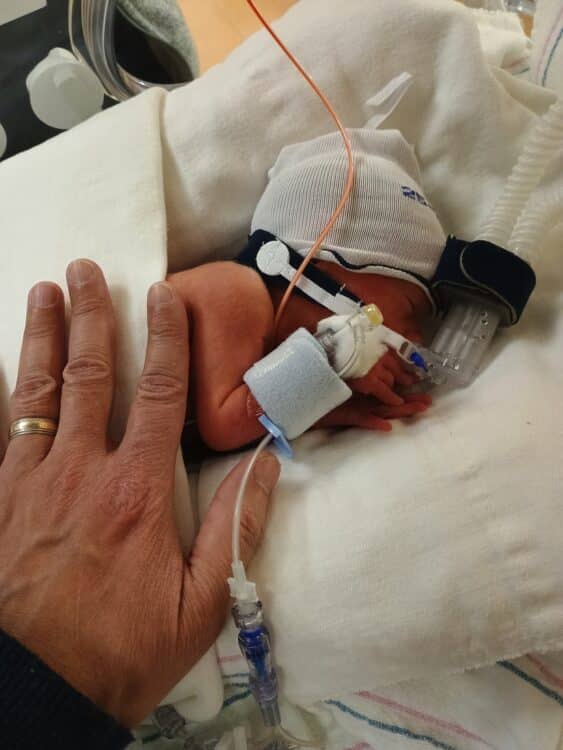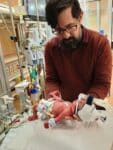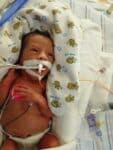Rachel and Marco Vargas never imagined they would defy astronomical odds when they learned they were expecting not one, but four identical baby girls.
The odds of having identical quadruplets (four babies from a single fertilized egg that splits three times) are incredibly rare—estimated at 1 in 11 million to 15 million births.
Identical quadruplets occur when a single zygote (fertilized egg) undergoes three consecutive splits, creating four genetically identical embryos. Most quadruplet pregnancies involve a mix of identical and fraternal sets due to multiple eggs being fertilized or incomplete splitting.
“I’m so happy to finally be able to touch and hold my four little girls now,” Rachel shared. “There were so many unknowns throughout my pregnancy, but I want other families to know that it’s okay to seek second opinions and advocate for the best possible care.”
The Cranston, Rhode Island, couple faced many medical challenges early on. Two of the babies shared the same amniotic sac and had a velamentous cord insertion, a condition that significantly increases the risk of complications. One baby was diagnosed with a congenital heart malformation, requiring future surgery, while another had a marginal cord insertion. As if these hurdles weren’t enough, two of the babies developed twin-to-twin transfusion syndrome (TTTS), a serious condition that disrupts blood flow between identical twins sharing a placenta.
As the complexities mounted, the Vargas family sought specialized medical expertise. At 21 weeks pregnant, Rachel and Marco decided to temporarily relocate to Phoenix, Arizona, to receive care from Dr. John Elliott, a globally recognized maternal-fetal medicine specialist renowned for managing high-order multiple births.
Under the care of Dr. Elliott and the team at Valley Perinatal Services, Rachel was admitted to Banner–University Medical Center Phoenix at just 23 weeks due to pre-term labor concerns. With expert medical intervention, she carried the pregnancy to 30 weeks and three days before delivering her four daughters via cesarean section on January 24.
Sofía, Philomena, Veronica, and Isabel entered the world between 7:59 a.m. and 8:02 a.m., each weighing between 2 pounds, 11 ounces and 3 pounds, 7 ounces. Despite their premature birth, the girls continue to receive care in the neonatal intensive care unit (NICU), where they are closely monitored until they are strong enough to go home.
With two older children, ages 1 and 3, the Vargas family is gearing up for a major lifestyle adjustment. They recently moved into a larger home to accommodate their growing household and eagerly anticipate bringing their daughters home.
“We’re eager to start this next chapter and bring our girls home,” Marco said. “This journey has been tough, but we are so grateful for Dr. Elliott’s expertise and the incredible medical teams who have cared for our family.”
Banner–University Medical Center Phoenix is home to one of the country’s leading maternal-fetal medicine programs, specializing in high-risk and multiple pregnancies. The hospital is Arizona’s first Level IV perinatal care center, recognized by the Arizona Perinatal Trust, and has earned accolades as a top maternity hospital by Newsweek.
Daniel Post, CEO of Banner–University Medical Center Phoenix, expressed gratitude for the opportunity to care for the Vargas family. “We are honored to have played a role in bringing these four beautiful girls safely into the world, and we look forward to seeing them thrive.”
For now, Rachel and Marco are focused on supporting their newborns as they continue their NICU journey—grateful, hopeful, and ready to embrace the adventure ahead.
Related Articles:























